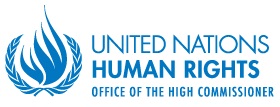World Water Day 2023 Online Roundtable "Accelerating Transformation"
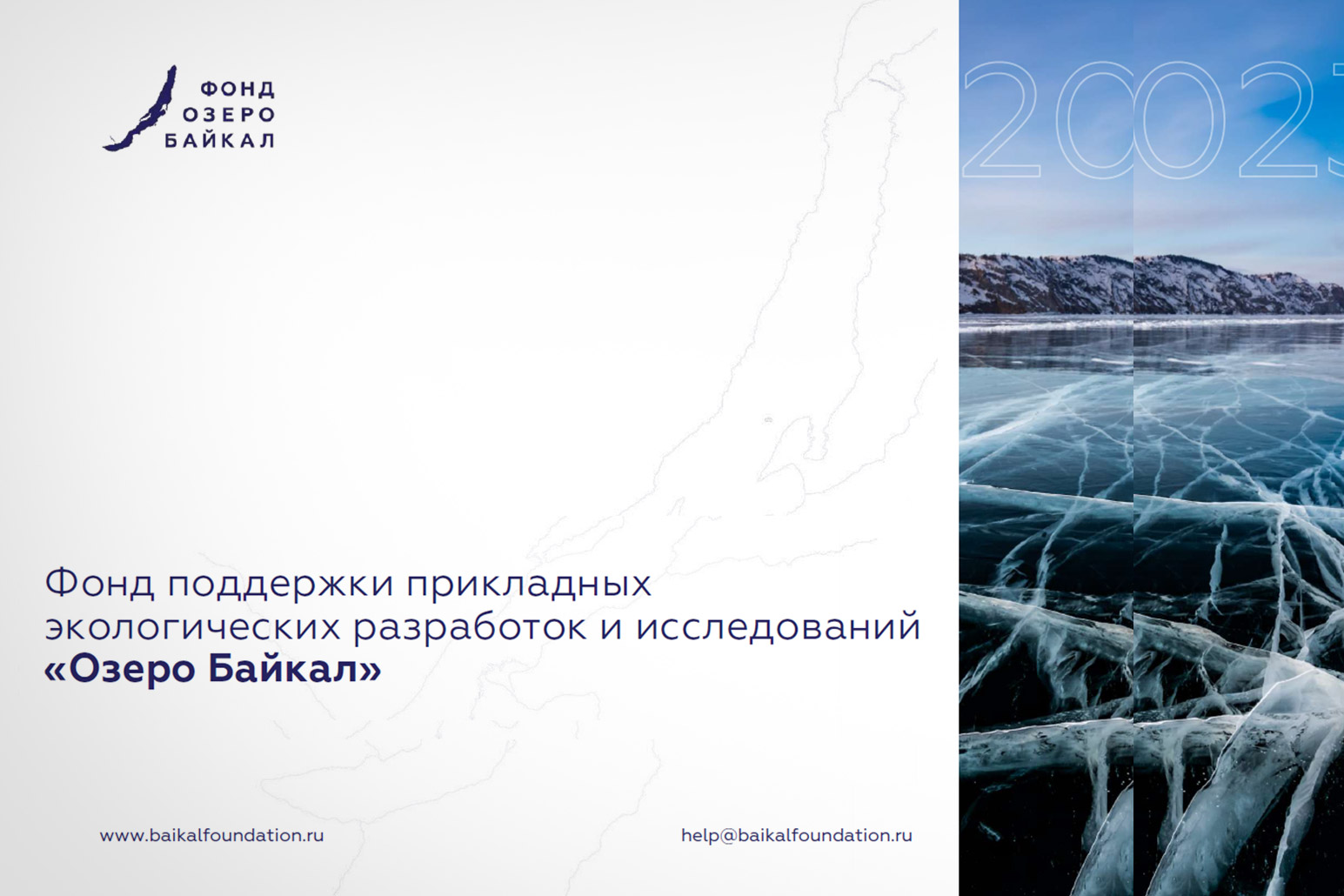
March 22, 2023The UN Information Center in Moscow held a traditional online round table dedicated to World Water Day. The discussion was attended by representatives of UN agencies, Russian environmental scientists, our colleagues from the RSL, the UN depository library, as well as teachers and students from leading Russian universities, such as MGIMO-University, MSLU, HSE, Diplomatic Academy of the Ministry of Foreign Affairs of the Russian Federation, PFUR, School of Translation at the Russian State Pedagogical University named after V.I. Herzen, Irkutsk State University, Nizhny Novgorod State University, Ufa University of Science and Technology, Russian State University of Justice, Yekaterinburg Humanitarian University, as well as students of Russian hospital schools "Teach Know".
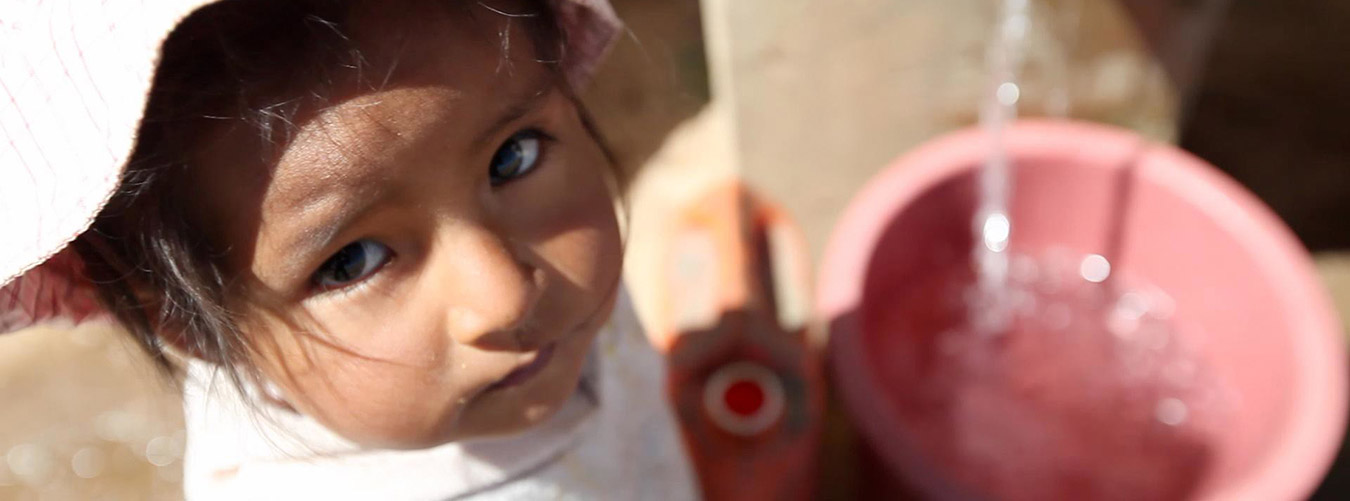
The round table was moderated by Natalia Evgenievna Ryazanova, Head of the Laboratory of Geoecology and Sustainable Environmental Management of the Department of International Complex Problems of Environmental Management and Ecology, MGIMO-University of the Russian Ministry of Foreign Affairs.
Opening the round table, Chairman of the UN team in Russia, Director of the UN Information Center in MoscowVladimir Valeryevich Kuznetsov noted that World Water Day has been held annually on March 22, since 1993. This Day emphasizes the importance of fresh water.
World Water Day focuses on supporting efforts to achieve Sustainable Development Goal 6 - “Water and sanitation for all by 2030”. Water is at the heart of sustainable development. Access to safe and clean water is a fundamental human right. However, decades of mismanagement and misuse of water resources have led to a crisis that threatens many areas of life.
UN-Water is the main UN agency for World Water Day. It determines the annual theme of the Day. 2023 Theme of the Day is "Accelerating Transformation".
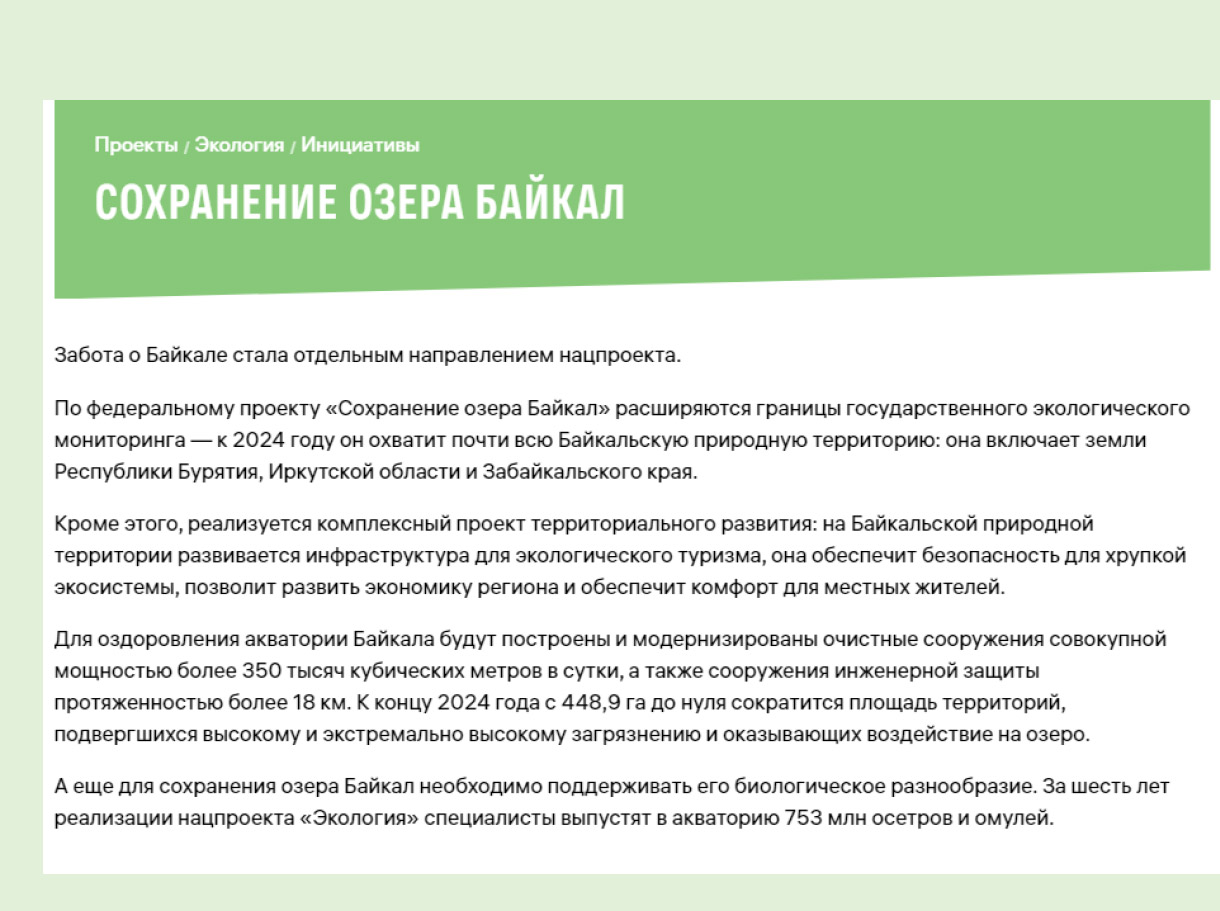
This year's World Water Day focuses on the theme of accelerating change to address the water and sanitation crisis. In 2015, the world committed to Sustainable Development Goal 6 under the 2030 Agenda, as a promise that by 2030 everyone will have safe water and sanitation. At the moment we are seriously off course.
Kicking off on Water Day, March 22 at UN Headquarters until March 24, the UN Water Conference 2023 is a unique opportunity to accelerate progress towards universal access to safe water and sanitation by 2030.
According to Li Junhua, UN Under-Secretary-General for Economic and Social Affairs and Secretary-General of the 2023 UN Water Conference, this forum will be a platform for taking bold action and addressing a wide range of water-related issues.
How we value water determines how we manage and share water. The value of water is greater than its price - water has tremendous and multifaceted value to our homes, culture, health, education, economy and the integrity of our natural environment. If we lose sight of any of these facets of value, we risk mismanaging this finite, irreplaceable resource. Without a comprehensive understanding of the true, multi-dimensional value of water, we will not be able to conserve this essential resource for the benefit of all.
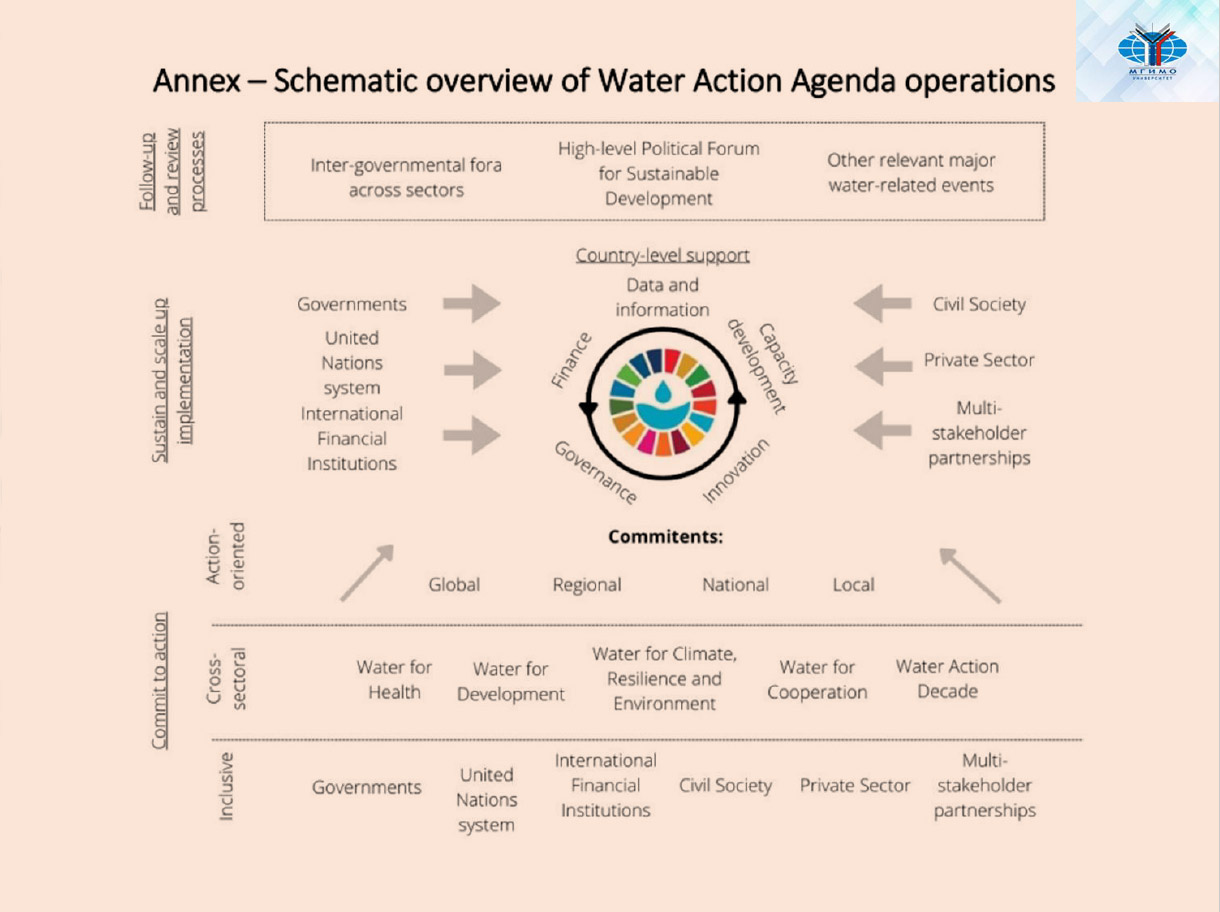
Vladimir Vladimirovich MOSHKALO, Head of the Russian Office of the United Nations Environment Program (UNEP) in his speech, he revealed the topic: “UNEP at the UN Conference on Water Resources”. He stressed that the UN Conference on Water Resources, which will be held in New York on March 22-24 this year. is a worldwide environmental event. The Conference is expected to adopt a Water Action Program representing voluntary commitments by countries and stakeholders to achieve the Sustainable Development Goals (SDGs) and their water-related targets.
V.M. Moshkalo emphasized that the solution of problems related to water requires worldwide cooperation and consolidation. Russia is in second place in the world in terms of fresh water reserves, second only to Brazil. Representatives of Russia within the framework of the Conference will share the experience of the largest projects implemented by the Russian Federation in the field of water resources, aimed at improving and reducing the anthropogenic load on water bodies.
What is UNEP doing at the UN Water Conference?
• Co-lead the development of the concept note for the interactive dialogue: “Water for climate, resilience and the environment: from source to sea, biodiversity, climate, resilience and disaster risk reduction”, which strongly recommends valorizing wetlands as nature-based solutions .
• Co-leader of the environment chapter in the World Water Development Report 2023.
• Side event "Circular economy - a key component of a water-centric society"
• Side Event "Stronger Together: Building Resilience and Prosperity through Integrated and Evidence-Based Management of the Ocean-Water Continuum"
UNEP's main contribution is the official launch of the report Measuring Progress: Water-Related Ecosystems and the SDGs. Available data on water-related ecosystems is doubling, increasing countries' ability to track the SDGs.
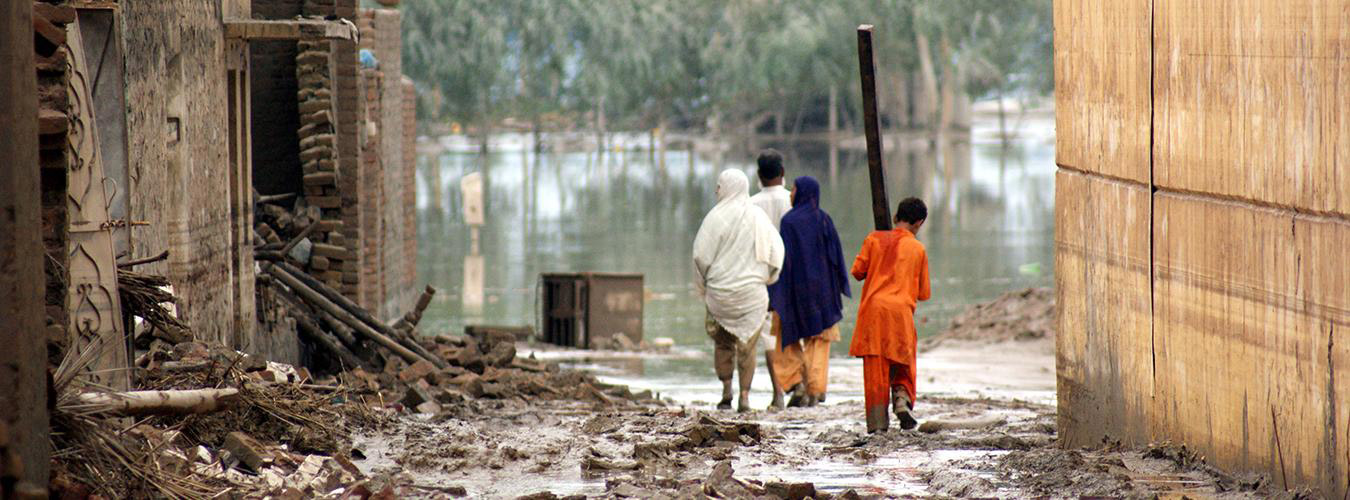
The Report calls on governments to continue strengthening their environmental statistical capacity and to encourage the use of non-traditional data sources such as big data and citizen science to fill data gaps. It is published a week before the 2023 UN Water Conference and in conjunction with the September SDG Summit in New York, which marks the midpoint of the implementation of the 17 SDGs of the 2030 Agenda agreed in 2015.
The 2023 UN Water Conference calls for bold commitments to accelerate progress towards SDG 6 and other water-related SDGs, including increased access to data and information and greater use of economic and environmental accounting (SEEA) to promote financing and protection of water - wetlands and other water bodies, including them in financial and other national accounts. All this requires more and better data at the global and local levels.
Dr Tatyana KOLPAKOVA, Public Health Specialist, Office of the World Health Organization (WHO) in the Russian Federation, spoke about WHO's activities to achieve the Sustainable Development Goal in the field of safe water supply.
She emphasized that the UN 2030 Agenda is both a plan for large-scale transformations and a tool to prevent the emergence of a variety of problems. This document includes 17 interrelated goals and targets in the field of sustainable development.
Goal 6 is formulated as follows: “Ensure the availability and sustainable use of water and sanitation for all” and includes 8 targets, each of which takes into account several indicators.
How is the supply of clean and quality water, sanitation and hygiene related to health? First of all, it is the prevention of infectious diseases. Second, water is a habitat for a number of disease vectors, such as mosquitoes that carry malaria and dengue fever. Favorable breeding conditions for mosquitoes can be created as a result of poor management of water resources and wastewater.
In addition, chemical contaminants in drinking water are a serious health problem, regardless of their origin - natural or anthropogenic. These include lead, nitrates, mercury and heavy metals, fluorides and arsenic (naturally present in groundwater in many places). Other drinking water contaminants that are beginning to be of concern include pharmaceuticals, pesticides and microplastics.
The World Health Organization, in partnership with UN agencies, coordinates work at the international level to develop expert recommendations for countries in achieving national sustainable development goals. In particular, a number of documents and specific action plans contain recommendations on key areas such as governance, financing, monitoring and evaluation.
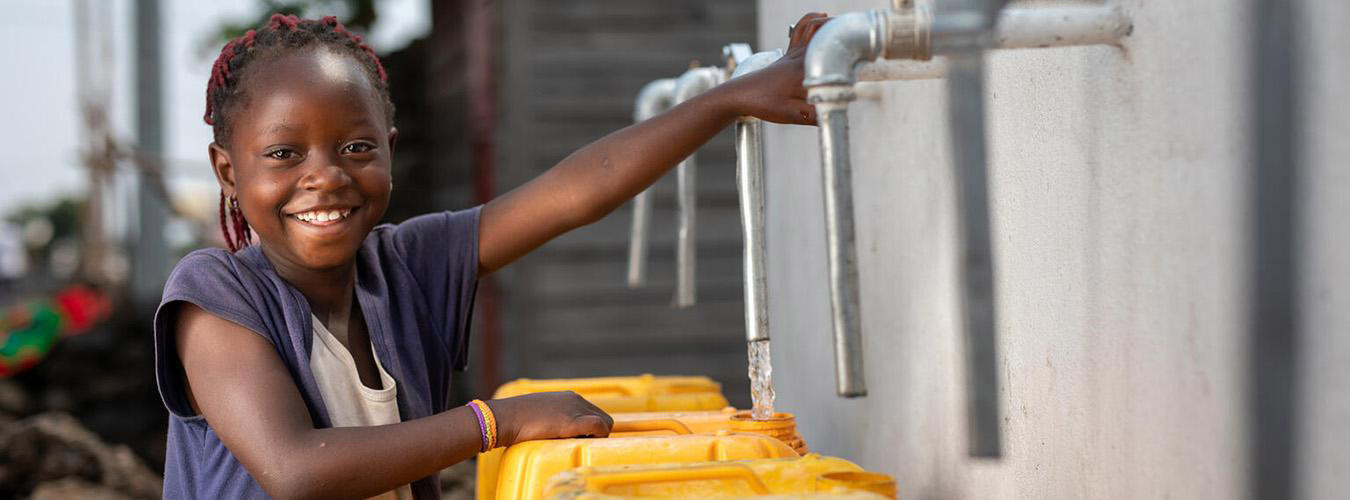
In anticipation of the Water Conference, the Global Analysis and Assessment of Sanitation and Drinking Water (GLAAS) prepared by WHO and UN-Water was released. The report contains the most up-to-date information on the state of water supply, sanitation and hygiene systems in more than 120 countries, is the largest collection of data to date. The first such study was conducted in 2008, and so far seven reports have been collected and seven reports have been published. All data were provided by the governments of the states.
In conclusion, Dr. Kolpakova drew attention to the fact that in 2015 the UN General Assembly recognized sanitation as a separate human right. These human rights are guaranteed to all, regardless of income, gender, disability or not, age or ethnicity.
MIKHEEV Vladimir Viktorovich, Press Secretary of the Food and Agriculture Organization of the United Nations (FAO) for Liaison with the Russian Federation, spoke on the topic: "FAO: water scarcity and scarcity" .
For FAO, water resources - their conservation, purification, use according to the principle of reasonable sufficiency - is the most important area of activity. Water is central to agriculture. In the case of fisheries and aquaculture, water itself is a production environment. The agricultural sector accounts for 72% of global freshwater withdrawals.
• Climate change is leading to a revaluation of value. Droughts and floods are becoming more frequent and severe; they currently affect 2.4 billion people worldwide.
• More than 90 percent of natural disasters are related to water.
• In many regions, there is an increasing shortage of water, which directly negatively affects food security and the scale of planetary hunger - let me remind you that now 828 million people are starving.
• Three out of four jobs worldwide depend on the availability of water resources. Water scarcity and lack of access to water hinder economic growth and, consequently, lead to social tension and forced migration.
• By 2050, between 4 and 5 billion people will suffer from water shortages. The reason for this is urbanization, the rapid development of large industrial centers, pollution of water bodies and the exhausted possibilities of their self-purification.
What to do? FAO and the UN generally believe that investments are needed to improve water management, storage, treatment and reuse.
Natalia Evgenievna RYAZANOVA, Head of the Laboratory of Geoecology and Sustainable Environmental Management, Department of International Complex Problems of Environmental Management and Ecology, MGIMO-University of the Ministry of Foreign Affairs of Russia, outlined the National Water Agenda of the Russian Federation in her speech.
Work on the national project aimed at preserving the environment is carried out in the following areas: waste disposal and processing, elimination of landfills, conservation of forests and water bodies, reduction of emissions into the atmosphere, development of environmental tourism and environmental education, conservation of biological diversity.
Caring for Baikal has become a separate area of the national project. The federal project "Preservation of Lake Baikal" expands the boundaries tsy state environmental monitoring. It is expected that by 2024 it will cover almost the entire Baikal natural territory, which includes the lands of the Republic of Buryatia, the Irkutsk region and the Trans-Baikal Territory.
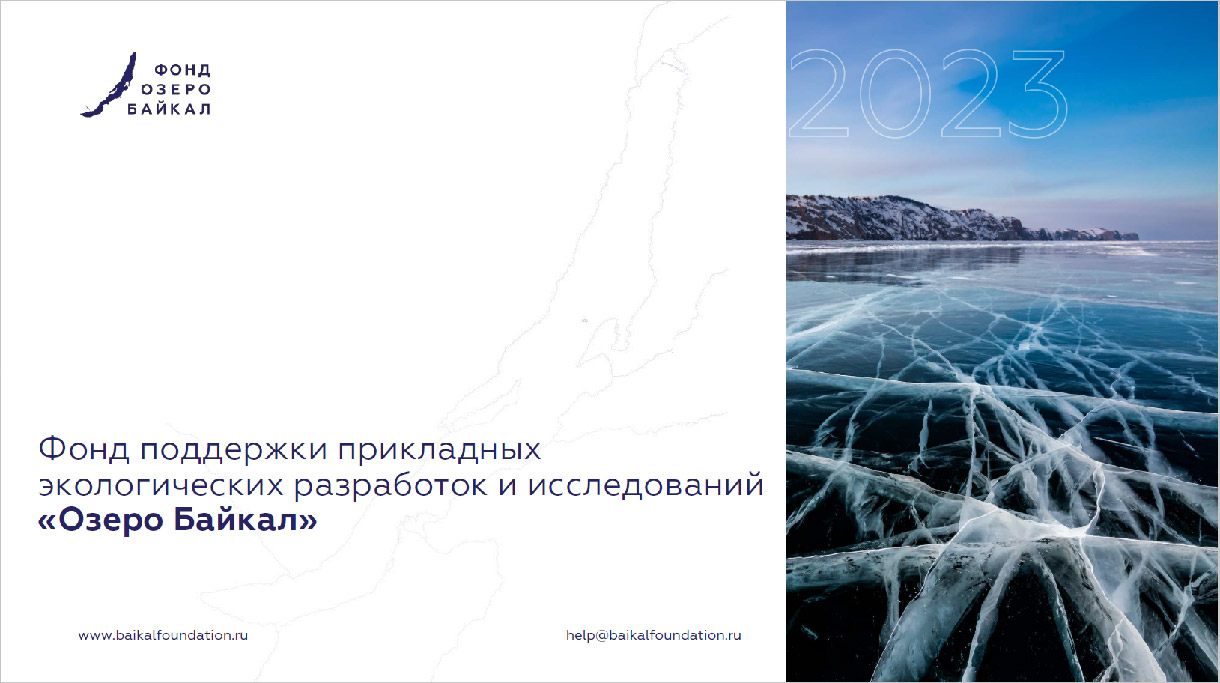
In addition, a comprehensive territorial development project is being implemented. Infrastructure for ecological tourism is being developed on the Baikal natural territory, which will ensure safety for the fragile ecosystem and will allow developing the region's economy and providing comfortable living.
The improvement of the Volga is also singled out as an independent national project. About 60 million people live in the Volga basin, which is more than a third of the country's population. Thanks to the national project, the state of the water area of one of the largest Russian rivers will improve dramatically. To this end, by 2024, the volume of polluted effluents discharged into the Volga will decrease by 2.12 cubic meters. km per year - 3 times compared to the level of 2017. In the Volga cities, the modernization of treatment facilities is being carried out. Where this is not possible, since some treatment plants were built about 50 years ago and cannot be reconstructed, new facilities appear.
Housing and urban environment. Own housing is becoming more affordable thanks to the development of mortgages and the increase in construction volumes. People are being relocated from emergency houses at the expense of the state, and public spaces are being improved in cities and historical settlements.
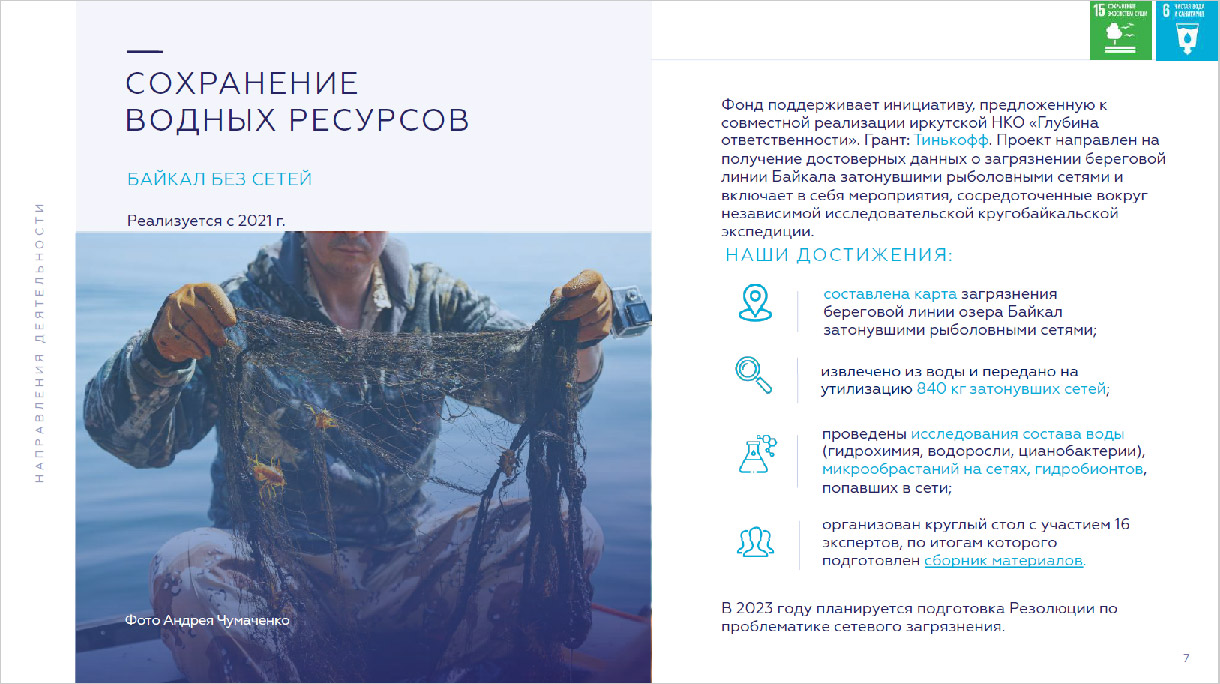
Pure water. The key objective of the project is to increase the proportion of the Russian population that has access to high-quality drinking water from centralized water supply systems. The project will help improve the quality of life of about 5 million people in large cities and rural areas. In 2021, more than 450 drinking water supply and water treatment facilities were built and modernized. This made it possible to increase the share of citizens provided with high-quality drinking water to 86%.
National project "Ecology", federal project "Preservation of unique water bodies". The goal of the federal project is to preserve at least 98 unique water bodies by 2024 through the restoration and environmental rehabilitation of at least 23.5 thousand hectares of water bodies, clearing sections of river channels for at least 260 km, as well as clearing banks and coastal waters of lakes from debris and rivers, including lakes Baikal, Ladoga, Onega and the rivers Volga, Don, Ob, Yenisei, Amur, Ural, Pechora.
Tatyana Valerievna AVGUSMANOVA, Deputy General Director for Educational Projects and Programs, spoke on the topic: “V.I. Vernadsky and the concept of sustainable development. Vernadsky on water resources and the Earth's hydrosphere"
She recalled that at one time the principles of sustainable development of mankind in harmony with nature and careful use of the resources of our planet were formulated by the outstanding Russian scientist, thinker Academician V.I. Vernadsky. In his doctrine of the biosphere, V.I. Vernadsky, back in the first quarter of the 20th century, pointed out that man is a part of the biosphere and, thanks to the development of scientific and technological progress, he himself becomes a geological force capable of influencing the very future fate of human civilization and its survival. In 1926, a book by V.I. Vernadsky "Noosphere", in which the scientist for the first time in history formulated the concept of the biological structure of the ocean - one of his main scientific achievements on a world scale.
The speaker noted that the ideas of V.I. Vernadsky and his teachings on the biosphere contributed to the development of various documents of a global nature - at the UN level. They led us from the decisions of the Stockholm Conference to the 2030 Agenda.
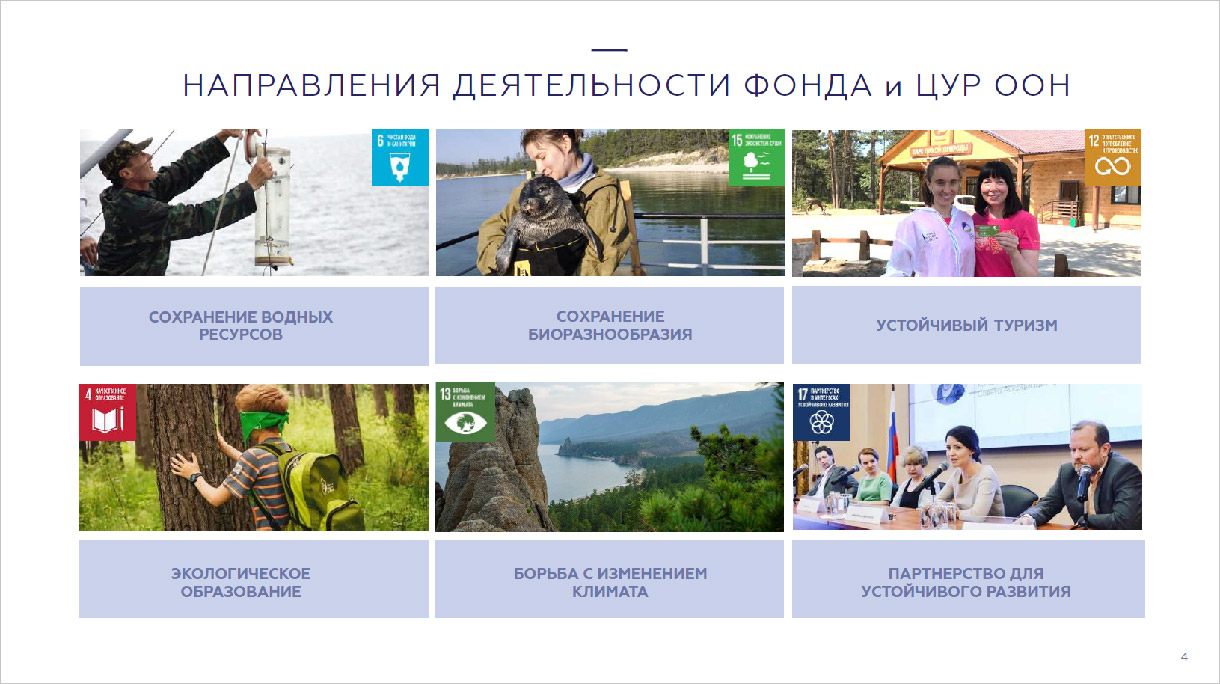
Understanding the importance of water resources for the development of mankind as a whole, V.I. Vernadsky wrote that “all natural waters, wherever they are and in whatever condition they are, are in the closest way yazans among themselves and form a single shell - the Earth's hydrosphere. In his book “The History of Natural Waters”, V. I. Vernadsky wrote about water as follows: “Water stands apart in the history of our planet. There is no natural body that could compare with it in terms of its influence on the course of the main, most grandiose, geological processes. There is no terrestrial substance - a mineral, a rock, a living body that would not contain it. All earthly matter is permeated and embraced by it.
This scientific work of V.I. Vernadsky in its significance still not only has no analogues in the world, but even any approximation to its content in terms of a bunch of developed ideas. The depth of coverage of the problems of water geology raised in it, the interaction of natural waters and living matter, the special role of water in the formation and development of life, the entire surrounding world, the Earth as a whole, is striking.
In our opinion, the thoughts of V.I. Vernadsky are at the heart of the principles formulated for the SDGs, including SDG 6: “Ensuring the availability and sustainable use of water and sanitation for all.”
Access to safe water, sustainable use of freshwater ecosystems are of great importance for human health, environmental sustainability and economic prosperity. And for this, a prudent attitude to water resources is necessary, as our great thinker, scientist and naturalist V.I. Vernadsky.
Irina Lvovna SAKIRKO, Director of the Department of Funds and Services of the Khimki Complex - Head of the Dissertation Department of the RSL, spoke to the information resources of the RSL Dissertation Fund on the topic “Water Ecology: Water Supply and Water Use Issues”.
She noted that providing the country's population with high-quality and safe drinking water is an important state task and underlies the National Ecology Project, which has been implemented in Russia since 2019.
In terms of fresh water reserves, Russia occupies one of the first places, but its quality is a matter of serious concern. The problems of water sources in Russia are associated with industrialization, the development of agriculture, as well as the low ecological competence of the population in its relationship with the environment. As a result, the most important sources of fresh water are polluted - the largest river Volga, Lake Baikal, many lakes, rivers and reservoirs, underground sources.
In studying the issues of water ecology, water supply and water use, the information resources of the dissertation research fund, which summarize statistical data, scientific methods and author's observations over the course of decades, can provide invaluable assistance.
The volume of the fund is 1,142,869 units.
The decisive moment in the development and formation of the dissertation fund as an integral part of the national library and information fund of documents of the Russian Federation was the adoption by the State Duma on November 23, 1994 of the Federal Law "On the legal deposit of documents."
Since January 1, 2017, the acquisition of the dissertation fund has received additional opportunities. The Federal Law "On Legal Deposit of Documents" assigned the Russian State Library, in addition to the original, to receive a legal deposit of dissertations in electronic form, certified by an electronic signature.
The electronic library (ELB) presents dissertations from 1998 to 2022, together with abstracts of dissertations - 64% of the total fund. Other publications - 582 333 - 35.6%; abstracts - 537 & nbsp; 111 - 32.8%; dissertations – 516,952 - 31.6%
Anastasia Valerievna TSVETKOVA, General Director of the Lake Baikal Foundation for the Support of Applied Environmental Research and Development titled her speech as follows: "Preserve water resources by combining the efforts of the state, business and civil society. Practices of the Lake Baikal Foundation."
Lake Baikal and the Baikal natural area is a sustainable ecosystem, the development of which takes place in compliance with the balance of environmental, social and economic interests. Decisions on the management of Baikal at all levels are made taking into account scientifically based long-term forecasts.
Areas of activity of the Fund and the UN SDGs:
Conservation of water resources (Goal 6 - Clean Water and Sanitation).
Conservation of biodiversity (Goal 15 - Conservation of terrestrial ecosystems).
Sustainable Tourism (Goal 12 - Responsible consumption and production).
Environmental education (Goal 4 - Quality education).
Combat climate change (Goal 13 - Combat climate change).
Partnership for sustainable development (Goal 17 - Partnership for sustainable development).
For seven years, the Foundation has been providing grant support to the program of ecological monitoring of Lake Baikal "Point No. 1" on the basis of Irkutsk State University. Thanks to continuous monitoring, it becomes possible to determine the state of plankton communities, on which the quality of water in Baikal depends.
Achievements of the Foundation in this area:
• integration into the project of an intelligent partner - Yandex.Cloud;
• 3 times the results were included in the State of the Climate international report;
• in 2022, a neural network was launched to automate environmental monitoring. In 2023, the neural network will continue to improve to improve the efficiency of sample recognition.
The Baikal Without Networks project has been implemented since 2021. The Fund supports the initiative proposed for joint implementation by the Irkutsk NGO Depth of Responsibility. The project is aimed at obtaining reliable data on the pollution of the Baikal coastline by sunken fishing nets and includes activities centered around an independent research expedition around the Baikal.
Among the achievements of the Foundation are the following:
• a map of pollution of the coastline of Lake Baikal by sunken fishing nets was compiled;
• 840 kg of sunken nets were removed from the water and transferred for disposal;
• studies of the composition of water (hydrochemistry, algae, cyanobacteria), microfouling on the nets, hydrobionts caught in the nets were carried out;
• a round table was organized with the participation of 16 experts, following which a collection of materials was prepared.
In 2023, it is planned to prepare a resolution on the problem of network pollution.
The Foundation participates in the preparation of a course on water management within the framework of the new bachelor's program "Managing Global Challenges" at the RANEPA. By disseminating current practices in the field of water management, the Fund contributes to the training of specialized personnel and, as a result, to solving the problem of a shortage of qualified specialists. In the future, the Foundation is considering the possibility of replicating the module into an independent bachelor's program both on the basis of the RANEPA and in other universities.
GRUZDOVA Polina Aleksandrovna, RYUTOVA Ekaterina Ivanovna, ODINOKOVA Ksenia Alekseevna, students of the Department of Nature Management and Ecology of MGIMO-University, 2nd year, made a presentation on the topic: "International cooperation to prevent plastic pollution of the ocean."
The authors of the study noted that 88% of the world's oceans are polluted with plastic waste. They examined the prerequisites for the formation of international regulation to prevent plastic pollution of the ocean; conducted an analysis of statistics on ocean plastic pollution, from which a database was compiled; reviewed regional regulations on ocean plastic pollution.
A video prepared by the UN was presented to the attention of the round table participants: "Eight actions that everyone can take to save water":
The video recording of the online roundtable can be viewed at the link:
Shared screen with speaker view
Shared screen with gallery view
Source: website of the United Nations Information Center in Moscow










